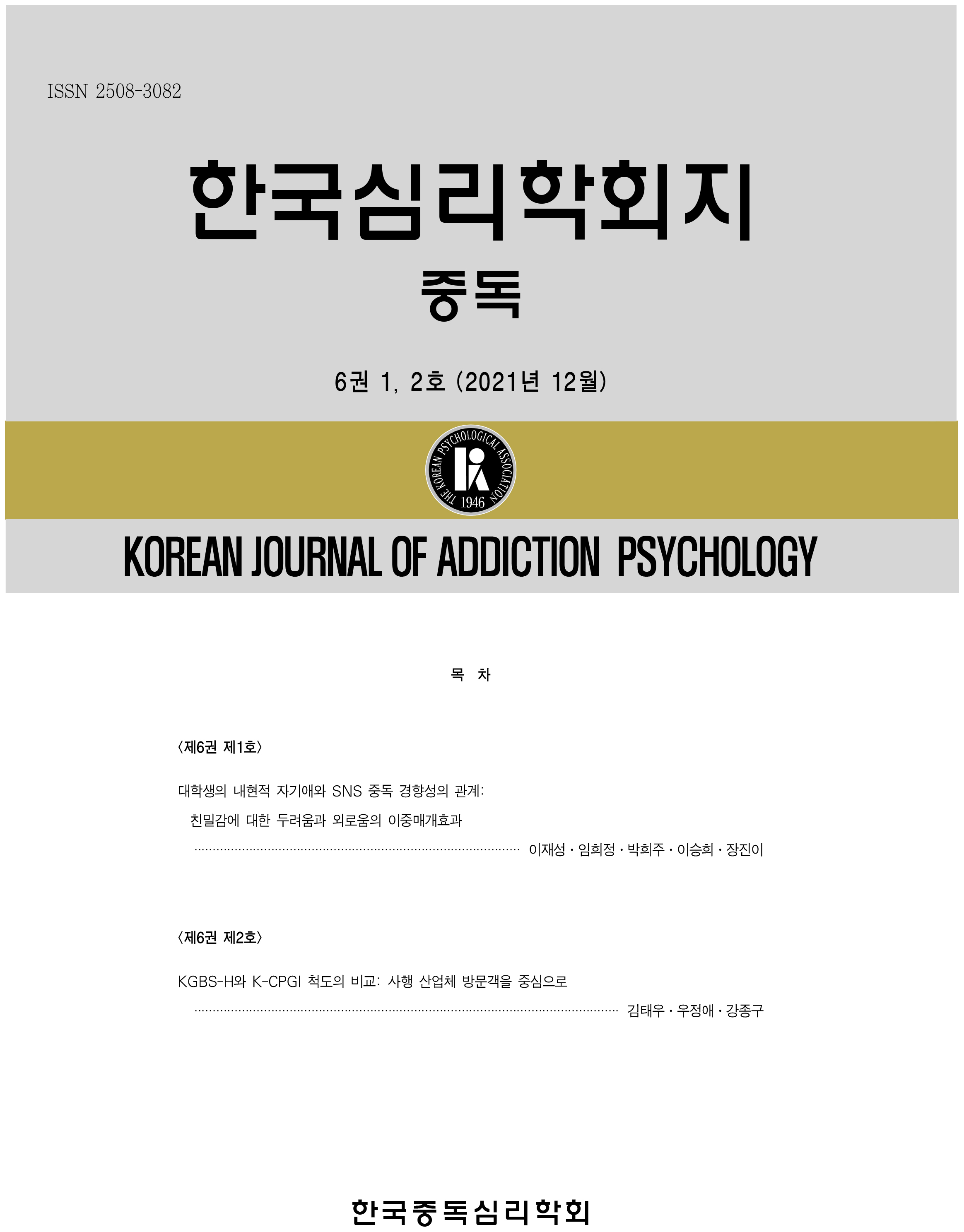재난피해자들의 음주량 증가, PTSD, 그리고 우울증 간의 관계: 위험요인과 보호요인
The relationships between Increased Alcohol Consumption in Disaster Victims, PTSD and Depression: Risk and Protective Factors

초록
재난관련 외상적 스트레스는 음주량 증가나 알코올 남용/의존과 관련이 있다. 또한 이런 알코올 남용은 PTSD와 우울증 그리고 그 외 다른 심리장애와 동반하는 경우가 많다. 따라서 본 연구는 국립재난안전연구원에서 수행한 "재난피해자 안심서비스 구축" 연구의 데이터를 이용하여 음주 여부와 음주량 증가가 재난피해자 집단과 대조군이 차이를 보이는지 그리고 음주량 증가와 심리장애 취약성 간에 서로 연관성이 있는지 살펴보았다. 이와 더불어 재난피해자들의 음주량 증가에 기여하는 위험요인과 이를 완화시킬 수 있는 보호요인은 무엇인지를 살펴보았다. 그 결과 현재 술을 마시는 사람 수는 재난피해자 집단보다 대조군이 더 많았다. 하지만 음주량이 증가한 비율은 재난피해자들이 대조군에 비해 약 4배 더 높았다. 또한 대조군의 음주량 증가는 우울증과 관련이 없는 반면, 재난피해자들의 음주량이 증가는 PTSD, 우울증, 알코올 남용/의존과 관련이 있었다. 이들 결과는 재난피해자들의 음주량 증가는 심리장애와 관련이 있다는 것을 나타낸다. 음주량 증가에 기여하는 위험요인과 이에 대한 보호요인은 각각 갈등 경험과 회복탄력성인 것으로 나타났다. 이들 결과는 재난과 관련된 갈등 발생을 감소시키고 심리적 탄력성 스킬을 증대시키는 중재가 중장기적으로 알코올 남용을 감소시키는데 상당한 이점을 가질 수 있을 것이다.
- keywords
- 음주량 증가, 우울증, 재난관련 갈등여부, 회복탄력성
Abstract
Post-traumatic stress associated with disasters is a potential risk factor for increased alcohol concumption or alcohol abuse/dependence. Moreover, alcohol misuse is often comorbid with PTSD, depression, and other psychological disorders. Thus, this study examined whether alcohol use and increased alcohol consumption among disaster victims differ from control group and whether increased alcohol consumption is associated with psychological disorders using "Establishment of Disaster victim relief services" research data performed by the National Disaster Management Research Institute(NDMI). Moreover, it was also examined risk and protective factors for greater alcohol consumption among disaster victims. The result revealed that the rate of current alcohol use was higher in control group than in disaster victims. However, the rate of increased alcohol consumption was 4 times higher in disaster victims than controls. Moreover, increased alcohol consumption in control group was not related to depression, whereas it was associated with PTSD, depression, and alcohol abuse/dependence among disaster victims. Risk and protective factors that contribute to greater alcohol consumption were disaster-related conflicts and psychological resilience, respectively. The results suggest that early intervention following disasters that reduces disaster-related conflicts and increases psychological resilience skills may have substantial benefit in reducing alcohol misuse in the medium to long term.
- keywords
- increased alcohol consumption, PTSD, depression, disaster-related conflict, resilience
- 투고일Submission Date
- 2019-05-06
- 수정일Revised Date
- 게재확정일Accepted Date
- 2019-06-16
- 다운로드 수
- 조회수
- 0KCI 피인용수
- 0WOS 피인용수


